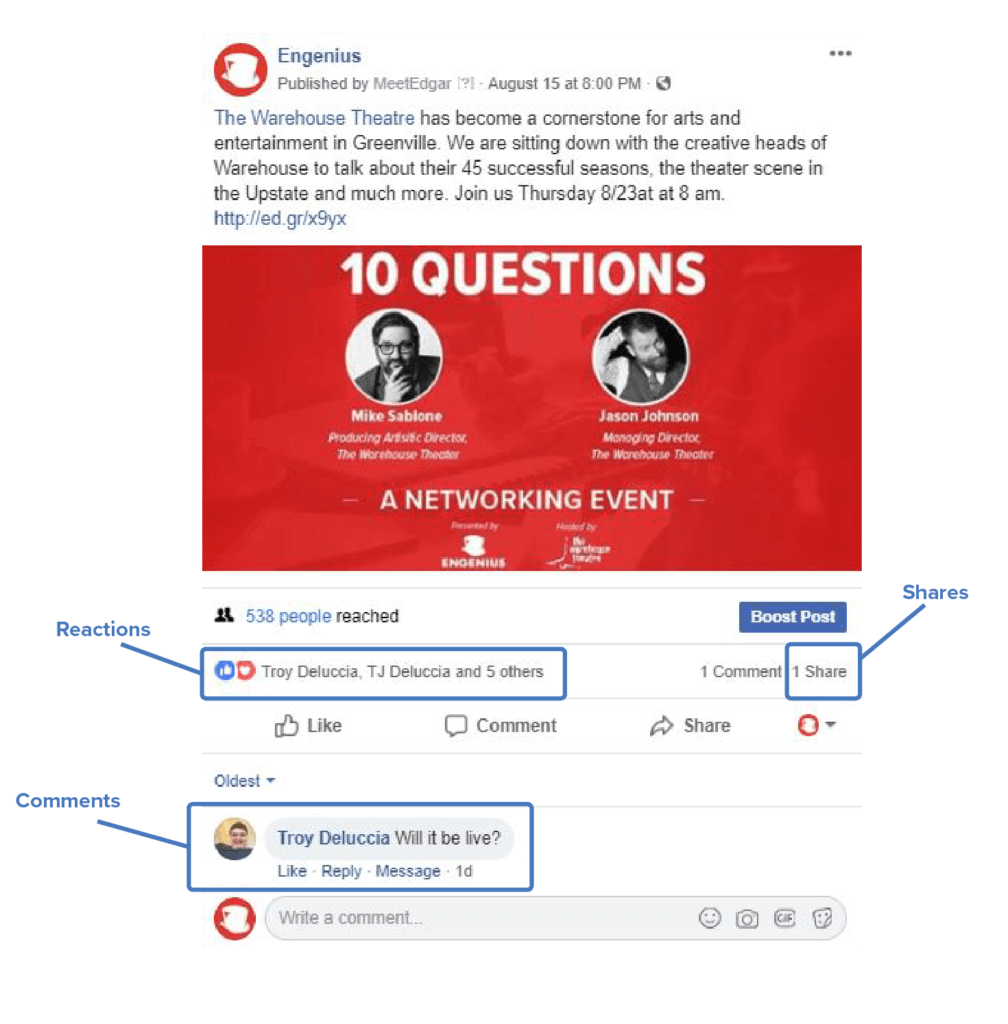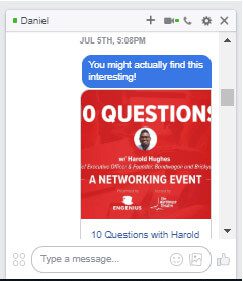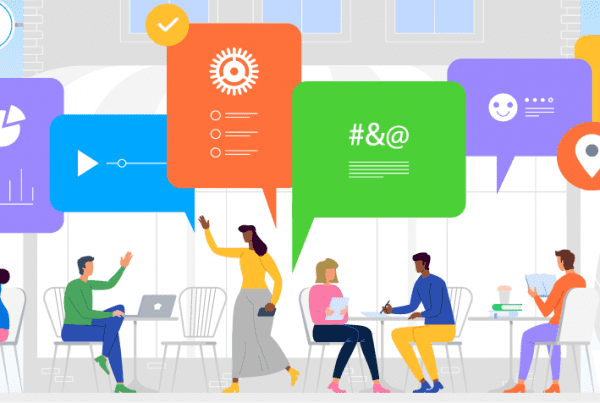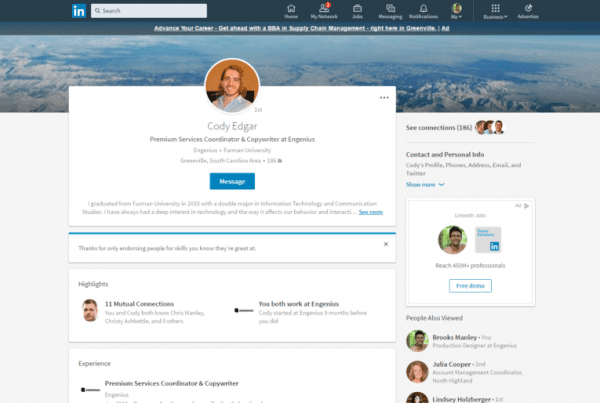Facebook kicked 2018 off with a bang — right at the start of the year they announced some sweeping changes to their algorithm. The main focus of the changes: downplaying the amount of branded content that appears in your News Feed and prioritizing what Facebook describes as “meaningful interactions.”
Mark Zuckerberg and Facebook provided a great deal of explanation in their own posts, but many people were left wondering: what does this mean for my business? What exactly are “meaningful interactions?” How should I adjust my content now that the algorithm works differently?
And we’ve noticed, both from our own clients and others in the industry, that website traffic from Facebook has been steadily declining all year. The good news is that there are other digital advertising platforms you could use, and of course advertising on Facebook is an option as well.
But people want to know why this is happening and what they can do to fix it. In this post, we cover the basics of how the Facebook algorithm works, outline the major changes that have happened as a result of the algorithm change and provide some actionable tips on how you can improve your organic reach on Facebook.
How Does Facebook’s Algorithm Work?
Anytime you visit Facebook there are thousands of posts that could be displayed in your News Feed. The algorithm takes these posts and arranges them based on how likely you are to interact with the content. That means, as a business, it’s rare that 100% of your followers are seeing the content you post.
The algorithm uses specific metrics to determine which posts appear in your feed and which are buried and unlikely to see the light of day. Before the algorithm change, Facebook prioritized what they now describe as “passive interactions.” These are things like:
- Amount of time spent on the platform
- Click-throughs — clicking on a link that sends the user to another site
- Likes
How has the Algorithm Changed?
While the results of the algorithm change are more noticeable now, organic reach on Facebook has been declining for a while. Facebook’s announcement in January was simply the first time they publicly acknowledged these changes.
The primary thing that has shifted is that Facebook is using different metrics to determine what posts appear in your News Feed. Instead of focusing on “passive interactions” they look at “active interactions” or “meaningful interactions.”
What is a “Meaningful Interaction”
The crux of all these changes is that Facebook wants you to be engaged in a conversation when you’re on their platform. That means instead of mindlessly scrolling through your feed, liking a post here and clicking on a link there, they want you to sit with a post, comment on it, and have a discussion with other people.
Facebook has framed this as prioritizing content from “friends, family, and groups” because you’re more likely to engage with a post from these people. But that doesn’t mean there aren’t steps you can take as a business to make the algorithm work for you.
By understanding what actions Facebook considers meaningful you can create content that meets those requirements and engages your audience.
Some actions that Facebook considers meaningful include:
- Comments: Business pages that post content that don’t get reactions or comments have seen the biggest decreases in distribution. Combat this by creating content focused on sparking conversations between users. Ask questions, write about timely and relevant topics, and ask for the opinion of your audience.
- Reactions: While getting someone to “like” your post is valuable, it’s even more valuable to get them to react. You want someone to “love” your post or be “wowed” by it; all reactions are given more weight than the standard “like.”

- Comment Replies: Again, it’s all about generating a conversation. If someone is replying to comments on your post that means there are discussions that are branching off of the content you made. That’s exactly what Facebook wants.
- Sharing Links over Messenger: Getting someone to share your post is awesome, but getting them to send a link to their friends, which you shared originally, is even better. This is mainly because it takes more effort and shows a genuine desire to continue the conversation.

- Engagement on Shares: Try to take a share one step further by getting people to comment and react to the shared post
How to Increase Your Organic Social Reach
While there is no way to “game” the Facebook algorithm, there are specific steps you can take to improve your content and increase the chances that your audience will see it. This mainly comes down to the type of content you post and the way you post it.
- Video is favored in the new algorithm, especially live video. On average live videos get six times as many interactions as regular videos
- Posting in Facebook groups has always been an effective way of getting your content in front of the right audience, but it’s even more important now that the algorithm has changed. Posting in a Facebook group lets you focus on specific topics and answer questions, increasing the likelihood of sparking a larger discussion.
- Localize your content. People are more likely to engage with your content if they can relate to it.
- Get users to follow your page. Be providing incentives for following you, or just creating great content that people genuinely want to see, your posts are much more likely to appear in front of people. Running Facebook ads can also generate more page follows and get your organic content in front of more people
Common Mistakes
From working with numerous businesses and keeping an eye on our industry, we see a lot of mistakes when it comes to Facebook strategy or lack thereof. So in addition to the things you should be doing, you should avoid the following:
- Posting just for the sake of posting. We see a lot of small businesses that have a social presence for no other reason than, well, everyone else is doing it. Before posting anything you need to determine if your audience is even on Facebook. Then come up with a strategy, actionable goals, and a consistent voice.
- Posting too frequently. It’s better to post once a week than five times a week if that one post is high quality and generates a conversation.
- Baiting engagement. Explicitly asking people to comment for irrelevant reasons is a signal to Facebook that you’re trying to manipulate the system and will result in your content being demoted.
- Driving people off of Facebook. Facebook used to prioritize click-throughs as a valuable action, but that is no longer the case. Having links in your posts isn’t universally bad, but if you’re only posting links to other websites you should mix it up.
- Posting the same content on all social platforms. What you post on Facebook should be different than what you put on Instagram and Twitter. Curate your content to the strengths of each platform and their respective audiences.
Looking to the Future
If you’ve been posting every single day just to get something out there, take a break and think about the big picture: where does your audience spend their time, what kind of content would they engage with, and what do you hope to achieve on social? Posting every single day just to do it will ultimately hurt more than help, so it’s critical to answer these questions first.
Already addressed these questions? Then start facilitating conversations with your audience! Post videos, relate an upcoming event with your community and answer questions on Facebook groups. Take things one step at a time and gauge what content and groups generate the most engagement. Keep an eye on your metrics and continually tweak things to create an optimal approach.
Keeping up with the Facebook algorithm is no simple task because it is changing constantly. The strategies that work today may be ineffective in a few months. For that reason, it’s important to continue educating yourself and to keep an eye on the news coming from Facebook and other social platforms.
No strategy is foolproof, but the tips covered here will give you a place to start.
Start the Conversation
Interested in learning more about maximizing your online presence?




